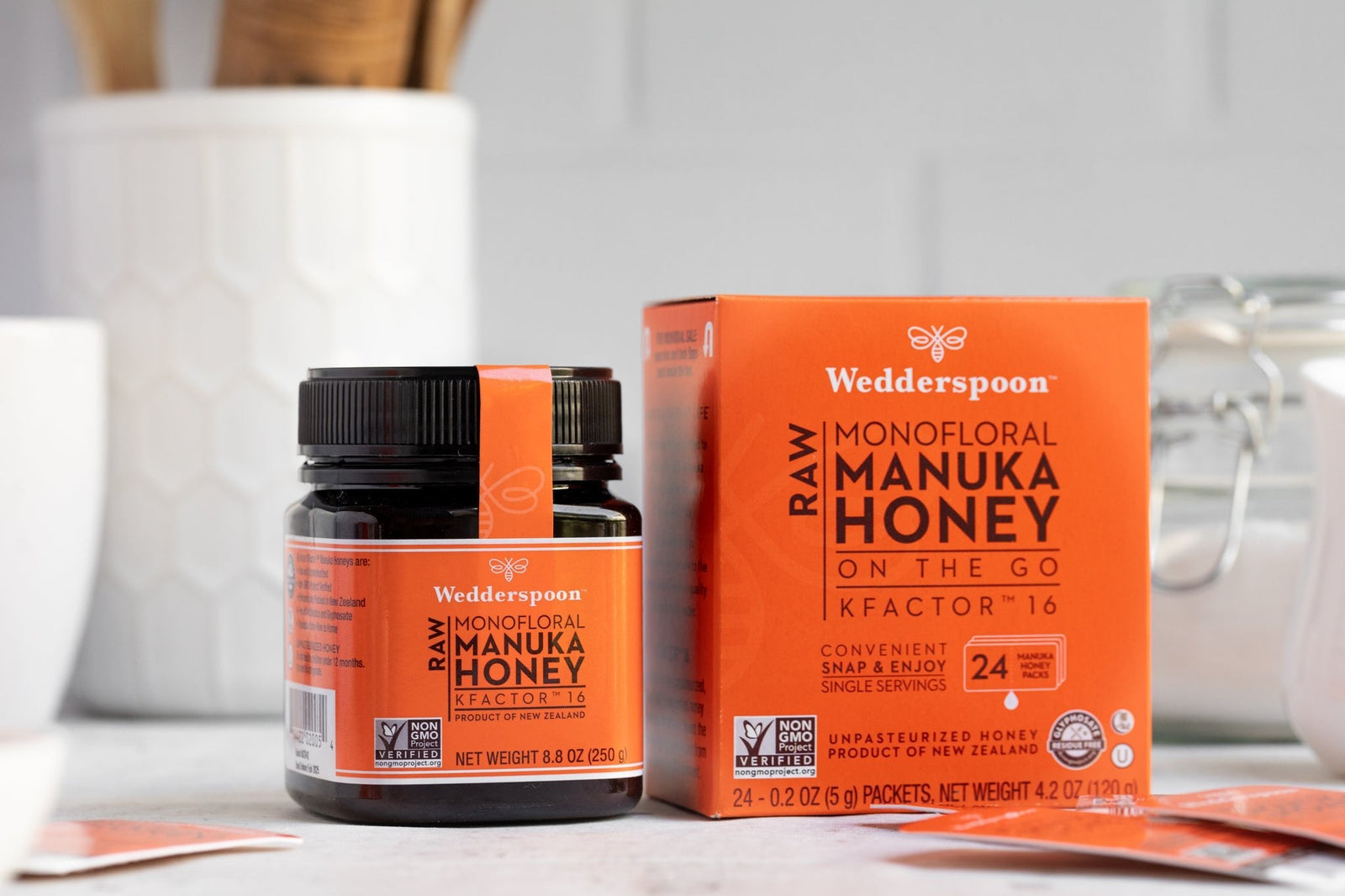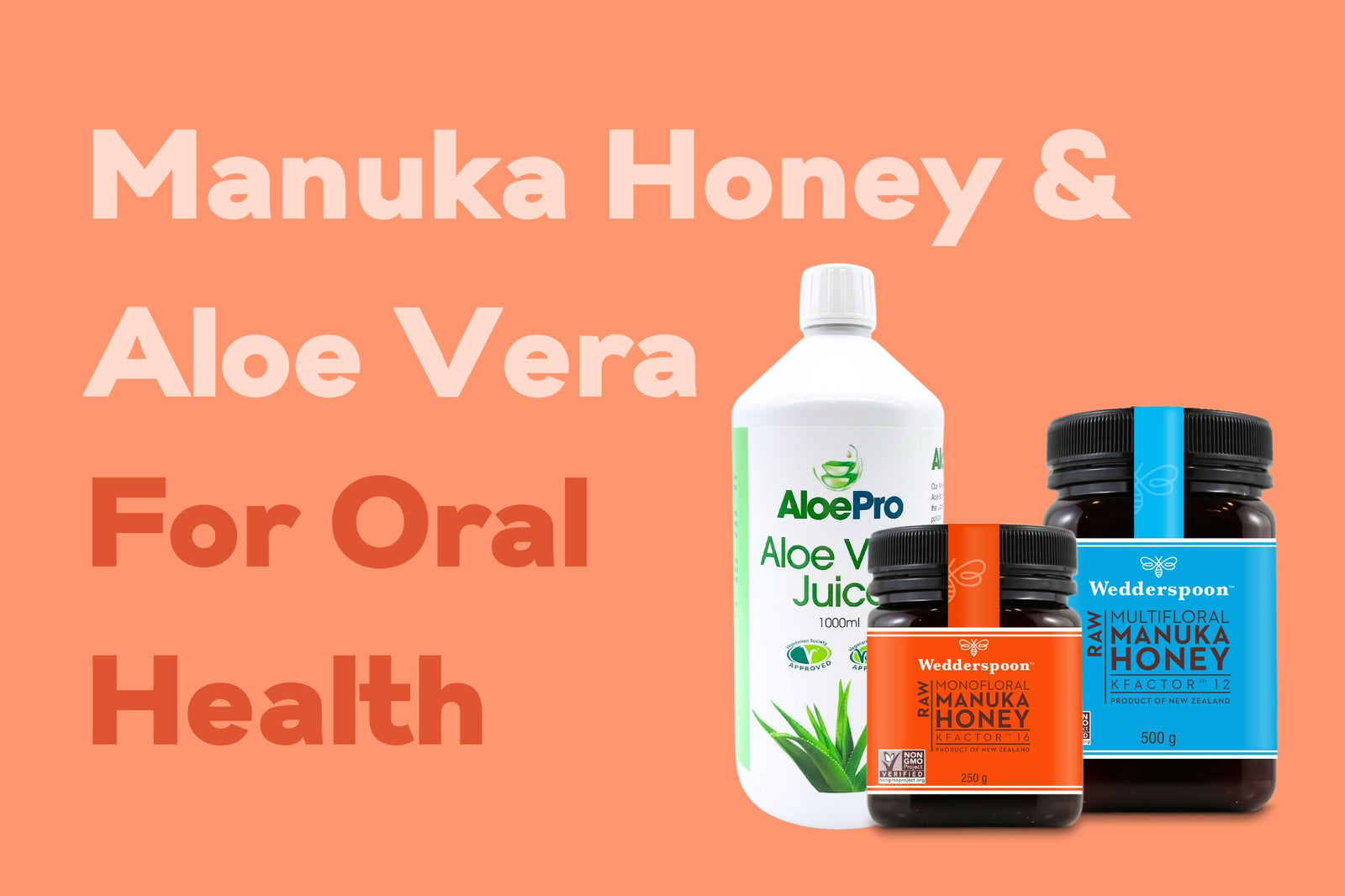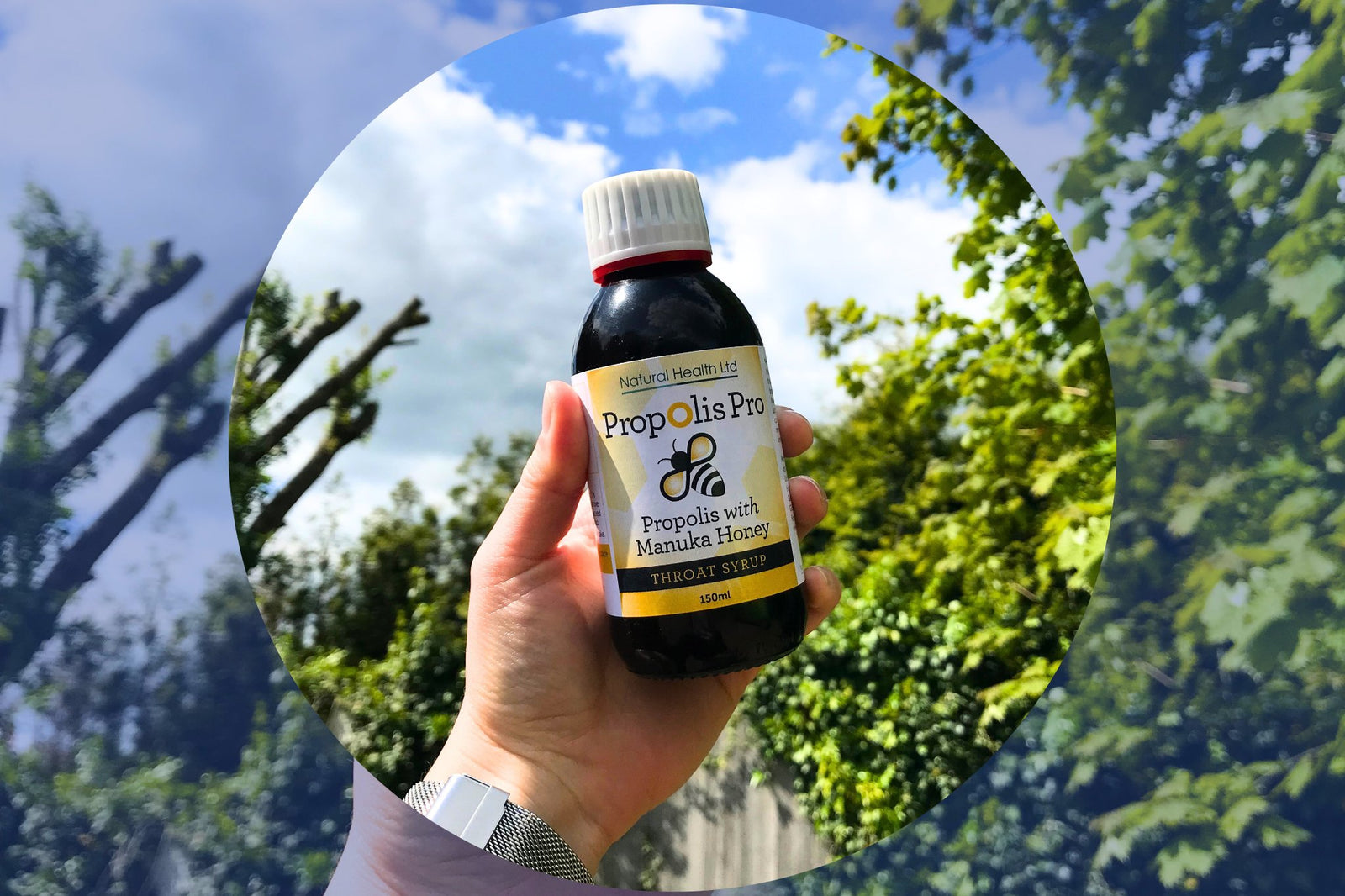Your Cart is Empty
Manuka Honey
Choosing the Right Manuka Honey: Multifloral vs Monofloral Explained
April 14, 2023 2 min read

Manuka honey, a remarkable honey native to New Zealand and Australia, is celebrated for its exceptional health benefits. It is derived from the nectar of the Manuka bush (Leptospermum scoparium). This honey has gained popularity for its potent antibacterial, antiviral, anti-inflammatory, and antioxidant properties. When it comes to choosing Manuka honey, there are two main types available - multifloral and monofloral. Let's delve into the differences between these two types and explore the overall benefits of Manuka honey.
Multifloral Manuka Honey
Multifloral Manuka honey is crafted from the nectar of various flowers, plants, or trees, including the iconic Manuka bush. Bees collect nectar from different floral sources, resulting in a honey that encompasses a blend of pollens. As a result, multifloral Manuka honey is generally more affordable as it contains a lower concentration of Manuka pollen. Nevertheless, it still retains numerous beneficial properties that are synonymous with Manuka honey's renowned reputation.
Benefits of Multifloral Manuka Honey:
- Antibacterial properties: Multifloral Manuka honey contains methylglyoxal (MGO), an active ingredient that gives Manuka honey its potent antibacterial properties, helping fight harmful bacteria and support a healthy immune system.
- Antioxidant properties: Multifloral Manuka honey is rich in antioxidants that protect the body from damage caused by free radicals, which can lead to oxidative stress.
- Digestive health: Multifloral Manuka honey promotes gut health by supporting the growth of beneficial bacteria in the gut and reducing inflammation in the digestive tract.
Monofloral Manuka Honey
On the other hand, Monofloral Manuka Honey is primarily derived from the nectar of the Manuka flowers. This results in a higher concentration of Manuka pollen, making monofloral Manuka honey the more potent, premium choice. However, due to its unique sourcing and superior quality, monofloral Manuka honey is generally more expensive.
Benefits of Monofloral Manuka Honey:
- Higher MGO and Manuka Pollen levels: Monofloral Manuka honey has higher levels of MGO and Manuka Pollen, making it more potent in terms of antibacterial properties.
- Unique flavour profile: Monofloral Manuka honey has a distinct flavour profile described as rich, earthy, slightly bitter, with hints of caramel and herbs, making it a preferred choice for culinary purposes by some.
- Certified for authenticity: Monofloral Manuka honey undergoes stricter testing and certification standards to ensure its authenticity and quality.
Choosing the Right Manuka Honey for You
When it comes to choosing between multifloral and monofloral Manuka honey, both types have their unique advantages, and the decision largely depends on your personal preferences and budget. Multifloral Manuka honey is a more affordable option, while monofloral Manuka honey is known for its higher potency and distinct flavour profile. Regardless of your choice, it's important to opt for reputable brands that adhere to quality standards and certifications to ensure that you're getting genuine Manuka honey for maximum health benefits.
Unlock the Full Potential of Manuka Honey with Wedderspoon KFactor - No Heat, All Enzymes
Find us on LinkedIn
Also in Blog
Subscribe
Sign up to get the latest on sales, new releases and more …













